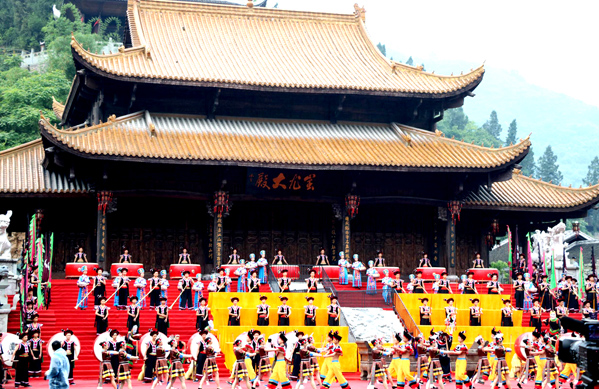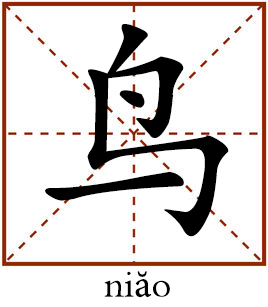Role of Dongyi culture in early civilization

The picture shows the ceremony in memory of Emperor Chi You, one of the greatest leaders of Dongyi tribes, in Pengshui County, Chongqing Municipality, on May 11, 2016. (LUO TING/QINGHAI NEWS)

The bird worship of ancient Chinese Dongyi people is deeply rooted in the worship of natural phenomena that recur periodically.
The word “Dongyi,” meaning “Eastern Yi tribes” in ancient Chinese history, refers to the local people in the eastern part of China in ancient antiquity. These people mostly lived in a vast land from the east of Henan Province to the coastal areas along and on the islands in the Bohai and Huanghai Seas.
The Dongyi people were named because of their relative location to the people in Central China. The Dongyi tribes were generally called “Allegiant tribes of Shi” in inscriptions on bones or tortoise shells of the Shang Dynasty (c. 16th-11th century B.C.). Historical literature from the pre-Qin period indicates that the name “Yi” had already been broadly used in the Xia Dynasty. For example, the Bamboo Annals compiled during the middle Warring States Period contains records about the nine Yi tribes during the Xia Dynasty. The name Taihao and Shaohao were originally the names of two groups of Dongyi tribes.
During the Five-Emperor Age, which historian Sima Qian defined as the beginning of the official history of China when the title “emperor” means tribes’ chief, the Dongyi community constantly divided into reorganized groups. For example, well-known tribes like Chiyou, Zhuangxu, Diku, Dishun, Gaoyao and Boyi all originated from these two groups. In the tribal wars during the Five-Emperor Age, The Chiyou tribe as the representative of Dongyi people engaged in fierce conflict with non-Dongyi people led by the Yan Emperor and the Yellow Emperor. The Chiyou tribe lost the war and all these tribes made concessions to establish a great union of tribes in Central China that was dominated by the tribe led by the Yellow Emperor. The establishment of this union greatly promoted the national amalgamation in the middle and lower reaches of the Yellow River.
During the process of the evolution of tribal unions in Central China during the prehistoric period, the tribes of Dongyi group played an important role. For example, tribes led by emperors Zhuanxu, Ku and Shun became leaders of the union. The Dongyi culture in the Neolithic Age was mostly a resident farming one. During the Five-Emperor Age, when primitive society transitioned to a civilized one, the Dongyi people had impressive achievements.
In the late Five-Emperor Age when emperors Yao, Shun and Yu successively became leaders of the tribal union, the groups of tribes in the Yellow River basin had relatively stable relations. Around the establishment of the Xia Dynasty, conflicts between the tribes became prominent as the primitive system of abdication under which leaders of different tribes took turns to serve as union leaders, was gradually replaced by the clan system of emerging dynasties.
Emperor Yu ruled as union leader for only a few years. After he passed away, neither Gao Yao nor Bo Yi of the Dongyi group won the struggle for the throne. It was Qi, the son of Emperor Yu, who ascended to the throne. The abdication system in favor of leaders from different tribes was replaced by the hereditary system. After King Qi died, Yi, leader of one of the Dongyi tribes, exiled the King Taikang of the Xia Dynasty and acted as regent.
Han Zhuo, minister of Yi, later killed Yi and King Xiang. Shaokang, the son of King Xiang, eventually fought back with the support of the Xia people and restored his rule over the dynasty. Historically, this was called the Resurgence during Shaokang’s Reign. Strictly speaking, it was not until the reign of King Zhu, son of Shaokang, that the Xia Dynasty was eventually stabilized as it further conquered the Dongyi tribes in the east.
All these events about the century-long communication and conflicts between the Xia and Dongyi peoples are recorded in the Book of History, Zuo’s Commentary on the Spring and Autumn Annals and the Records of the Grand Historian. This might be the last great incident during the period of the establishment of the early civilized society of China.
Zhang Fuxiang is a professor from the Advanced Institute of Confucian Studies at Shangdong University.
(edited by CHEN ALONG)
